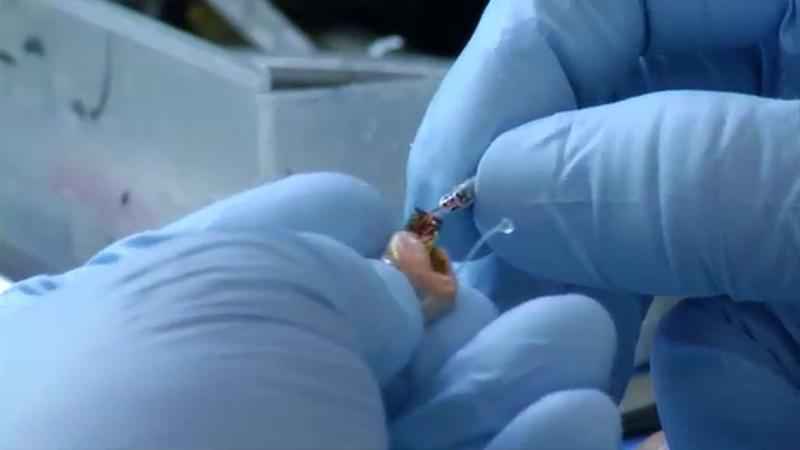COVID cases connected to hearing loss, other ear issues
[anvplayer video=”5064628″ station=”998122″]
There’s an increase in the number of people reporting hearing issues after recovering from COVID-19.
While it’s early, and more studies will be needed to have a better understanding of its connection, the chief innovation officer for Starkey Hearing Technologies says there are a "significant number" of people who experienced hearing issues after they contracted COVID-19.
Starkey, based in Eden Prairie, is a world leader in the hearing industry and specializes in creating products to help people hear better. It also tracks hearing loss trends and is keeping a close eye on this one.
"About 7% of the people who had COVID are reporting hearing loss after they had COVID-19," said Dr. Dave Fabry, Starkey’s CIO.
Fabry went on to say that another 7% reported vertigo symptoms and about 15% had ringing in their ears, also known as tinnitus.

[KSTP]
"While that’s a significant number [of people], and one I think that deserves more study," Fabry said.
He added that around 10% of the U.S. population has hearing loss, making those studies that much more important to know how significant of a connection the virus has with the hearing issues.
Fabry says getting your hearing checked can help researchers with those studies. He says it’s ideal for people to get their hearing checked before a COVID-19 diagnosis — this will give people a better understanding of whether or not their hearing is impacted if they get diagnosed and recover from COVID-19.
"Go in and see an audiologist or a hearing instrument specialist," Fabry added. "It takes about a few moments and we can quickly see whether or not you’re experiencing symptoms of hearing loss that may be related to COVID."
When asked how the industry is keeping an eye on any possible connection to the COVID-19 vaccine, Fabry said it’s very important to separate the virus and the vaccine when discussing this.
"Fortunately, we haven’t seen any strong indication of the vaccine being tied in any way to an elevated risk of hearing, hearing loss, balance problems, or tinnitus," Fabry said.
Following a pause because of the pandemic, Starkey reported that it has had an increase in interest in hearing checks.
From being isolated more, working from home in a less noisy environment to masks preventing the ability to read lips, Fabry believes that the increase in interest is likely because people are more in tune with their hearing issues.
Starkey offers hearing checks in-person and even has an online test to check your hearing.